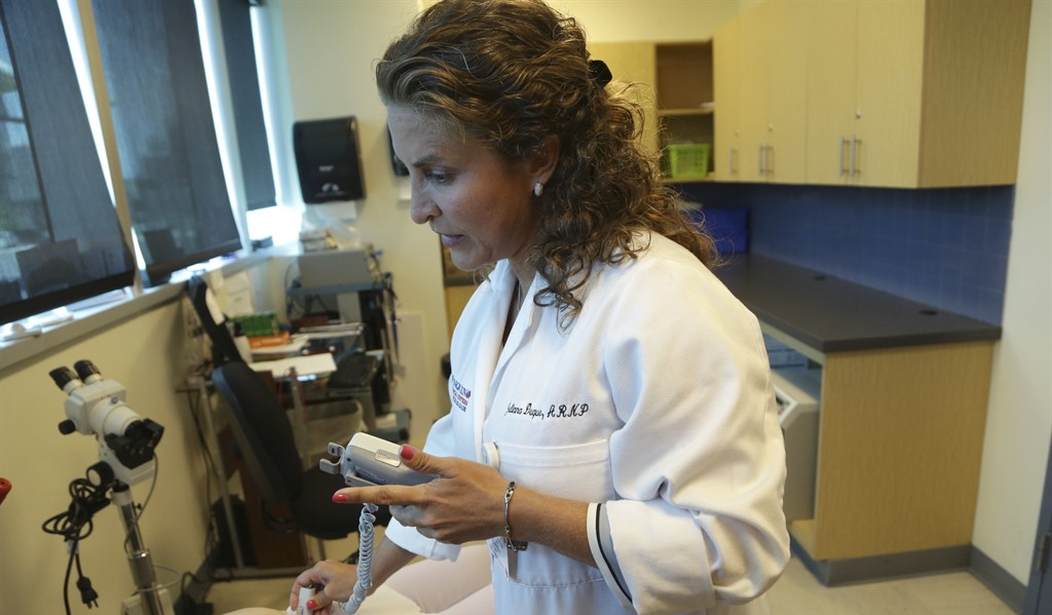President Trump recently issued an Executive Order protecting and improving Medicare for our nation’s seniors. The October 3, 2019 order was intended to increase Medicare beneficiaries’ access to primary care. The executive order is little more than a policy goal at this point. Item five of the executive order annoyed physicians. It gave the Secretary of Health and Human Services (HHS) 12 months to formulate a proposal to expand the autonomy of nurse practitioners (NPs) and physician assistants (PAs) working in the Medicare program. Under the proposal, so-called midlevel providers would be allowed to practice with far less supervision, prescribe medications and bill Medicare when they see Medicare patients. The proposal also seeks to equalize compensation paid to physicians and PAs/NPs treating Medicare patients.
NPs and PAs have been fighting for greater autonomy for decades. However, the proposal has some powerful enemies: doctors. This is how it currently works: in virtually all states doctors are responsible for the care provided by NP/PAs. Some states require NPs/PAs to have collaboration agreements with physicians. Yet, not all physicians want to collaborate with NPs/PAs and those who do naturally demand a portion of the revenue and often place restrictions on what tasks NPs/PAs can perform. Many other states require a form of direct supervision, often requiring a percentage of patient case files be reviewed by the supervising physician. Thirty-nine states even place limits on the number of NP/PAs any one doctor can supervise.
This turf war, known as scope of practice, is raging not just on Capitol Hill but also in state legislatures all across the country. It is easy to see why physicians oppose greater autonomy for midlevel providers. Recall I said that doctors currently must supervise midlevel providers in virtually all states. Thus, most NPs and PAs either work for doctors or work with doctors and give them a cut of their pay. Under President Trump’s initiative, physicians would lose some of their ability to profit off NPs/PAs' work. More galling is the fact that physicians have much more rigorous training requirements, higher student loan balances yet may be paid the same for a 20-minute office visit with a senior. With this executive order President Trump seeks to turn NPs/PAs into primary care physicians’ competitors rather than employees and collaborators.
Recommended
Why allow seniors to make appointments with nurse practitioners and physician assistants independent of doctors? Because the vast majority of medical conditions that patients experience are simple problems that don’t require a doctor to diagnose or treat. More complicated conditions are easily referred to specialists. General practitioners participating in Medicare already do this. Furthermore, numerous surveys have found NPs have high satisfaction ratings and are rated as better listeners than physicians. Indeed, various surveys have found physicians tend to interrupt their patients with seconds after patients begin describing symptoms. More to the point, 78 million Baby Boomers will become eligible for Medicare by 2030 and many will be unable to find a primary care provider unless the supply is expanded. The Association of American Medical Colleges predicts a shortage of nearly 122,000 physicians by 2032.
Non-seniors should care about turf battles in Medicare because what Medicare does affects other areas of medicine. Current regulations that govern the practice of medicine are exclusive. Stated another way, state and federal regulations purposely create barriers to entry, making it more difficult to practice medicine and inhibits competition. In his book Capitalism and Freedom, Nobel laureate Milton Friedman described the American Medical Association as the “strongest trade union in the United States.” Trade unions reduce competition, not promote it. Cartels and professional guilds are never pro consumer. They exist primarily to boost the wages of guild members.
Whether in rural areas or urban areas, Medicare or private health plans, patients should have the choice and convenience to decide who they want to see. Patients should be free to see a nurse practitioner, a physician assistant, a primary care doctor or a physician specialist depending on their needs. When doctors argue all other medical staff should report to physicians in the name of patient safety, keep in mind the safety they are most concerned about is the safety of their income stream.
























Join the conversation as a VIP Member